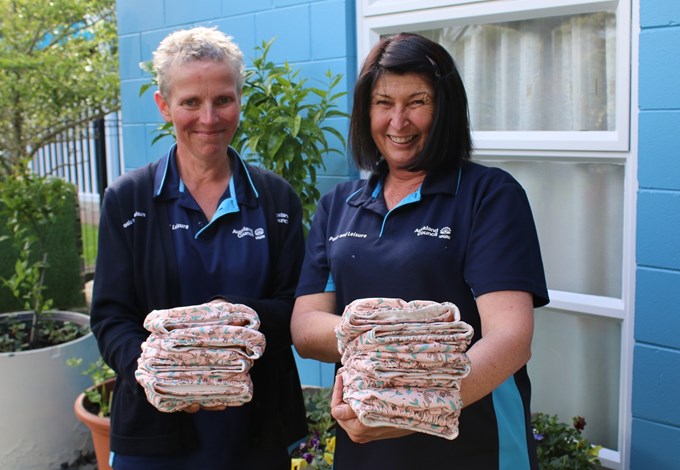East Coast Bays Kauri Kids have ditched disposable nappies in favour of cloth nappies as part of their plan to be more sustainable.
The Browns Bay centre was keen to investigate different sustainable practices and teamed up with Auckland Council WasteWise Advisors to look for ways to minimise their waste.
“We thought we were pretty good with our recycling and waste, but when we looked at what was filling up our rubbish bins, we realised we could do better,” says headteacher Paula Albertsma.
“We were exploring different ways to become more sustainable, ways that made sense and were doable. Things like worm farming, the nappies, the waste-auditing, it just seemed to flow in together.”
One of the worst offenders taking up space in the rubbish bin was disposable nappies, which do not break down in landfill. Using cloth nappies helps minimise the amount of waste a family creates on a daily basis. In Auckland, nearly 12 per cent of domestic kerbside waste sent to landfill is sanitary waste, which includes single-use nappies.
“We had a visit from Waste Free Parenting expert Kate Meads and decided to run a cloth nappy trial. It went well, was easy to adopt and made a big difference to our rubbish bin,” explains Paula.
“We saw it as a really positive change and have now purchased our own nappies to use.”
Auckland Council offers early childcare centres a free eight-week cloth nappy trial, along with advice on other ways to reduce waste.
Children arrive in their own nappies, they are put into a cloth nappy and changed as required throughout the day. When it is time to go home, they are changed back into their own clean disposable nappy, and the cloth nappies are washed at the centre.
Teacher Arda van Kuyk says parents openly welcomed the trial.
“We let parents know what we were doing and shared information about Waste Free Parenting. It was great for them to see us making a change and show them how easy it was. We were okay with it – it’s not dirty or gross.”
Paula adds, “It really isn’t hard or complicated. For some there was the fear of the unknown and that it might be a lot of extra work and not as convenient. But when they saw we didn’t have a problem with it, that changed.
“A lot of parents were surprised to learn that with disposable nappies, you are meant to clean them off before you put them into the rubbish. So, for us at the centre, it’s not like we are doing anything different with a cloth nappy.”
She says the whole experience has been positive. “Not only are cloth nappies better for the environment, but they are also soft and comfortable, and they look good. Not using disposables saves the parents money as they no longer need to supply the centre with nappies for the day.”
When the trial ended, the staff all agreed it was a change they wanted to adopt and the centre purchased their own cloth nappies.
“We don’t want to be adding unnecessary waste to the environment. We want to save it for our children. We work with our little tamariki and we want them to have a planet. If we can do something small, it helps. Small steps add up to make big changes. If you get the children and parents thinking about it, they might make changes too,” Paula says.
Now, as new families come through, they won’t know any different – cloth nappies will be the norm says Arda. “They’ll just know that this is how we do it here and we’ll be able to show them the benefits and how easy it is.”
Interested in learning about Waste Free Parenting?
You can learn about your different nappy choices and other ways to reduce household waste at a Waste Free Parenting workshop with nappy lady Kate Meads. For more information, including dates and bookings, visit Waste Free with Kate.
Got a zero waste idea?
The Waste Minimisation and Innovation Fund (WMIF) brings ideas to life and supports our target of zero waste to landfill by 2040. WMIF funds projects from businesses, local iwi, and education and community groups that will minimise waste. Learn more about when and how to apply.


